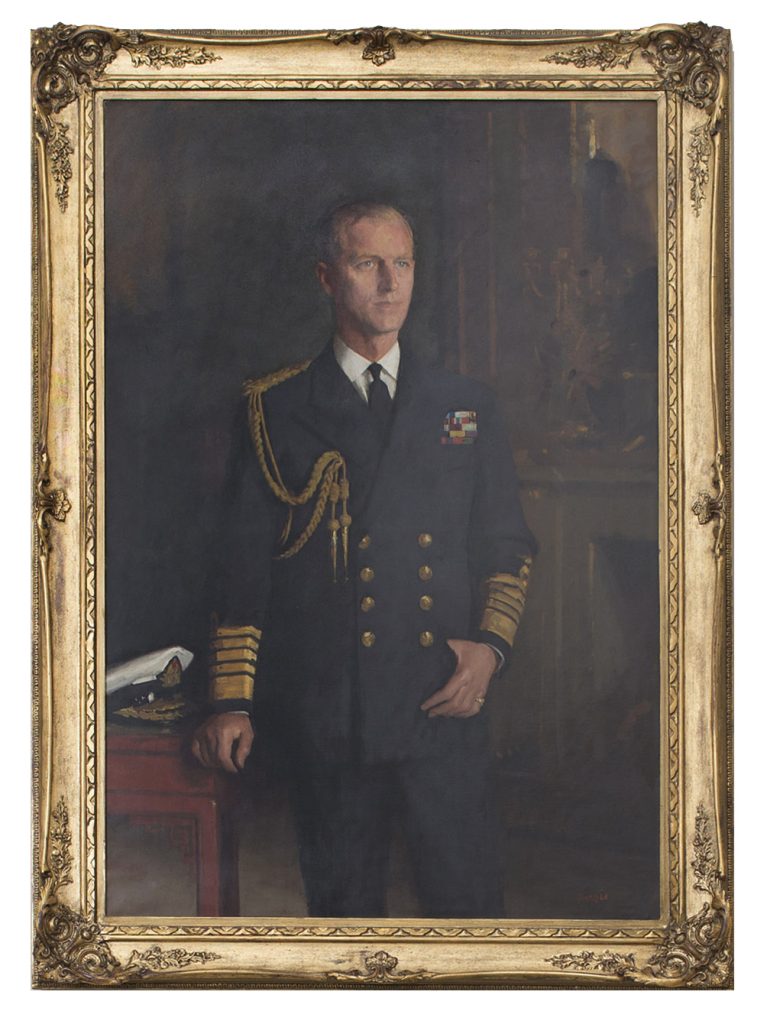Sir William Dargie, HRH Prince Philip, Duke of Edinburgh, portrait, 1956
Summary
William Dargie (1912–2003) is renowned for his 1954 full-length portrait of the newly crowned Queen Elizabeth II, known as the ‘Wattle Painting’ and held in the National Portrait Gallery, in Canberra. Dargie painted this portrait of Prince Philip, Duke of Edinburgh, two years later. Dressed in uniform and with his left-hand thumb resting in his blazer pocket, there is a certain awkwardness to the depiction: formal and yet uncomfortably casual. Like the portrait of the young Queen, which was the first made by an Australian artist following her accession to the throne a year earlier, this half-length oil of Prince Philip is closely associated with James P. Beveridge OBE, a Melbourne industrialist. Beveridge commissioned the Queen’s portrait for Australia, and two years later, in 1956, his family donated this portrait of Prince Philip to the City of Melbourne. This gift coincided with Melbourne hosting the Olympic Games, for which the Duke of Edinburgh was in town to formally declare open.
An official war artist for Australia during World War II and a painter of portraits, landscapes and still lifes, William Dargie enjoyed a long and fruitful career of more than 60 years. He is, however, best known for his contribution to Australian portraiture, completing countless commissions, including many from individuals of society’s upper echelons. He was awarded the Archibald Prize an impressive eight times.
